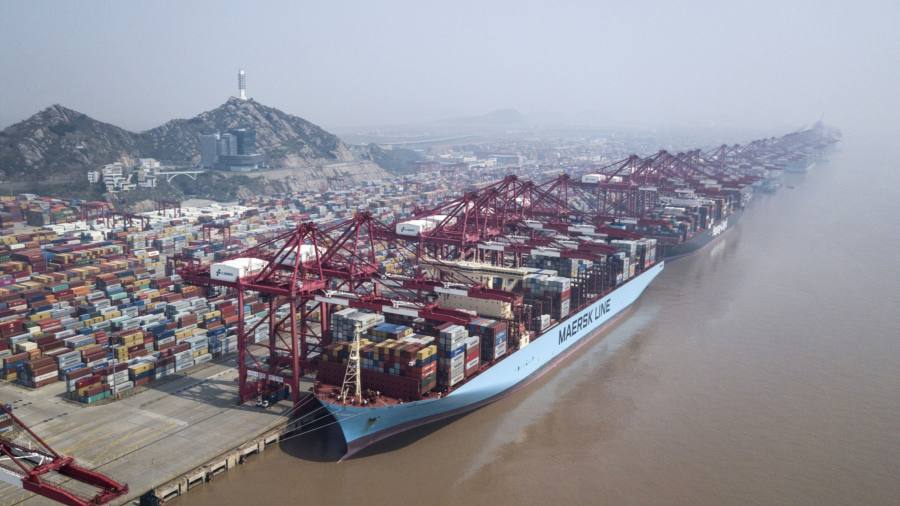Four of the so-called Magnificent Seven technology stocks that have powered the US market rally for the past nine months ended the week in correction territory, having fallen by more than 10 per cent from recent peaks.
Another two — Microsoft and Amazon — are close to the double-digit falls that define a correction. Investors are looking ahead to further tech earnings updates next week amid worries about punchy valuations and the risks that returns from vast artificial intelligence-related spending may not live up to early hopes.
Nvidia and Tesla are each down 17 per cent from their recent peaks while Meta and Google parent Alphabet have fallen 14 per cent and 12 per cent. Apple is the best performer in the group, having lost just 7 per cent while Microsoft and Amazon have slid about 9 per cent each.
On Wednesday Alphabet sparked a wider market sell-off when, despite it reporting solid quarterly operating numbers, its shares fell more than 5 per cent on concerns about AI-related investments. Its $13bn quarterly capital expenditure was almost double the levels of a year ago.
“For a long time investors were really sold on the premise that AI investment in and of itself — spending money — is good,” said Max Gokhman, a senior vice-president at Franklin Templeton Investment Solutions. “What we’re seeing now is . . . investors saying, ‘Hold up a sec, what are the productivity gains here, when do you expect to see them?’”
Alphabet’s fall helped drag the tech-heavy Nasdaq Composite to its worst one-day decline in 18 months on Wednesday, down 3.6 per cent. The index ended the week down 2.1 per cent.
Microsoft, Meta, Apple and Amazon earnings next week may set up a fresh test of investor faith in the AI narrative that has been a crucial driver of market gains.
“Expectations are high and valuations for the Mag Seven aren’t cheap. We’re also closer to the point when we see some decelerations in earnings from them as a group — from the beneficiaries of AI in general,” said Josh Nelson, head of US equity at T Rowe Price.
Investors this week also showed they were prepared to punish companies that missed expectations, with Tesla losing 12 per cent on Wednesday after slowing sales and its own AI spending shrank profits more than expected. And Ford shares tumbled 18 per cent on Thursday when its profits fell short, hurt by unexpectedly high warranty costs.
On average, companies that missed expectations had seen their shares drop 3.3 per cent in the days surrounding their earnings, according to data from FactSet, more than the five-year average of 2.3 per cent.
Companies that beat expectations saw on average no gains in their share price, FactSet reported.
“The trend of misses getting punished more than beats get rewarded is getting a little bit more significant,” said Liz Ann Sonders, chief investment strategist at Charles Schwab. “There is uncertainty and skittishness with regard to just how fast the market, driven by those names ran, without the commensurate improvement in their forward earnings prospects.”
Sonders also pointed to the fact that the earnings season under way had coincided with a “rotation” among investors taking profits in the biggest tech names in favour of backing smaller companies that were more likely to see big benefits if the Federal Reserve begins to cut interest rates in September.
This week, the Russell 2000 index of small-cap stocks added 3.5 per cent while the blue-chip S&P 500 fell 0.8 per cent.





























